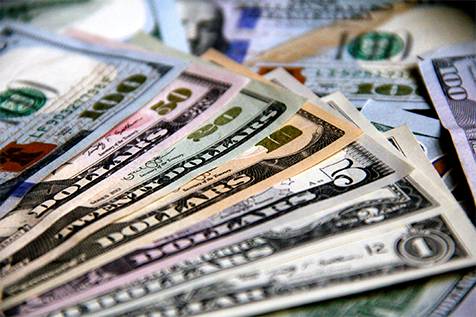The Japanese yen declined in Asian markets on Wednesday against a basket of major and minor currencies, pulling back from a two-week high against the US dollar recorded earlier in the session. This marked its first loss in three days amid active profit-taking and corrective movements.
The decline followed the announcement of a major trade agreement between Tokyo and Washington, which includes US tariff reductions on Japanese imports and a commitment by Japan to invest approximately $550 billion in the United States.
The Price
USD/JPY rose 0.4% to ¥147.20, up from an opening rate of ¥146.59, after hitting a session low of ¥146.19 — the weakest level since July 11.
On Tuesday, the yen gained 0.55% against the dollar, posting its second consecutive daily gain amid falling yields on 10-year US Treasury bonds.
Major Trade Agreement
President Donald Trump announced Tuesday the signing of a “massive” trade agreement with Japan, including reciprocal tariffs of 15% on Japanese exports to the US and a reduction of tariffs on Japanese cars to 15%, down from the current 25%.
In a post on Truth Social, Trump described the deal as “perhaps the biggest ever,” noting that Japan will inject $550 billion in investments into the United States, with America set to earn 90% of the profits.
Trump added that the agreement will open Japanese markets to American goods, including cars, trucks, rice, and other agricultural products, claiming it will create “hundreds of thousands of jobs.”
Japanese Prime Minister Shigeru Ishiba stated that US tariffs on Japanese vehicles would be reduced from 25% to 15% — a significant step, given that the auto sector forms the backbone of Japanese exports to the US, accounting for 28.3% of total shipments in 2024, according to customs data.
Japan’s auto exports (including cars, buses, and trucks) to the US dropped by 26.7% in June, following a 24.7% decline in May.
Total Japanese exports to the US — its second-largest trading partner — amounted to ¥10.3 trillion ($70.34 billion) between January and June, a 0.8% year-over-year decrease.
Ishiba’s Political Future
Tuesday’s announcement comes just days after Prime Minister Ishiba’s ruling coalition lost its majority in the Japanese Upper House elections, raising concerns about weakened leverage in U.S. negotiations.
According to HSBC, a favorable trade deal with the U.S. could help Ishiba fend off a no-confidence vote or internal challenges from within the Liberal Democratic Party.
While Ishiba declared his intention to remain prime minister after the electoral loss, Japanese media outlet Yomiuri reported early Wednesday that he would decide whether to stay in office based on the progress of tariff negotiations.
Japanese Interest Rates
Last week’s data showed core inflation in Japan slowed more than expected in June, suggesting weakening price pressures on the Bank of Japan.
Following the release, market expectations for a 25 basis-point rate hike at the BoJ’s July meeting dropped from 45% to 35%.
Investors now await more data on inflation, unemployment, and wages to reassess these odds.


